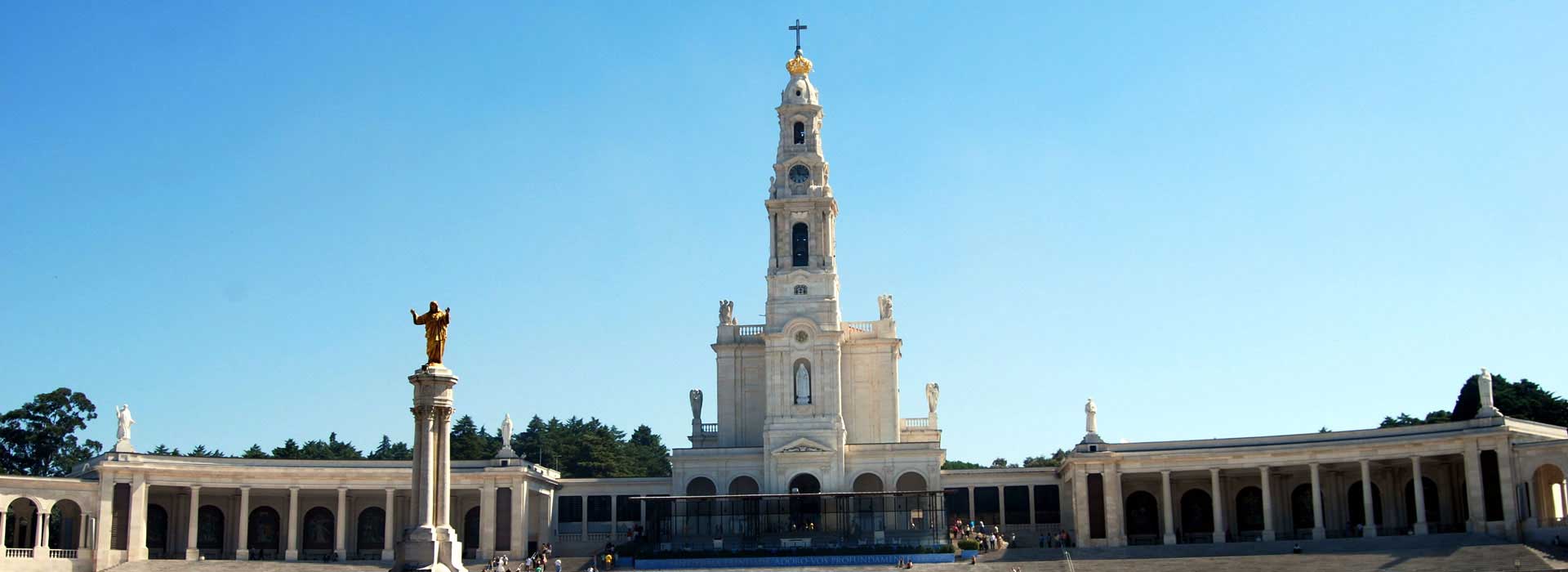
FÁTIMA
Located 128 kilometres (80 mi) north of Sintra, ensconced in the hills of Santarém, is the renowned pilgrimage site of Fátima. Despite its modest population of under ten thousand, this humble town attracts millions of devotees annually. They journey here to pay homage to the site where the Virgin Mary is said to have appeared to three young shepherds - Lúcia, Francisco, and Jacinta - in 1917.
Let MADABOUTSINTRA.COM be your indispensable companion to ensure a seamless trip. Explore our comprehensive guides to discover the must-see attractions, dining spots, and accommodation options. Additionally, we offer curated tours tailored to enhance your experience, removing the hassle of sightseeing.
Corresponding to the apparitions, pilgrims flock to Fátima on the 13th day of each month from May to October. To accommodate the vast congregation, a monumental white basilica and esplanade were erected. Completed in 1953, the courtyard outside boasts twice the capacity of St. Peter's Square in the Vatican. Fátima holds profound significance for Catholics, serving as a sacred pilgrimage destination, while also captivating non-believers with its intriguing allure.
THE MIRACLE OF FÁTIMA
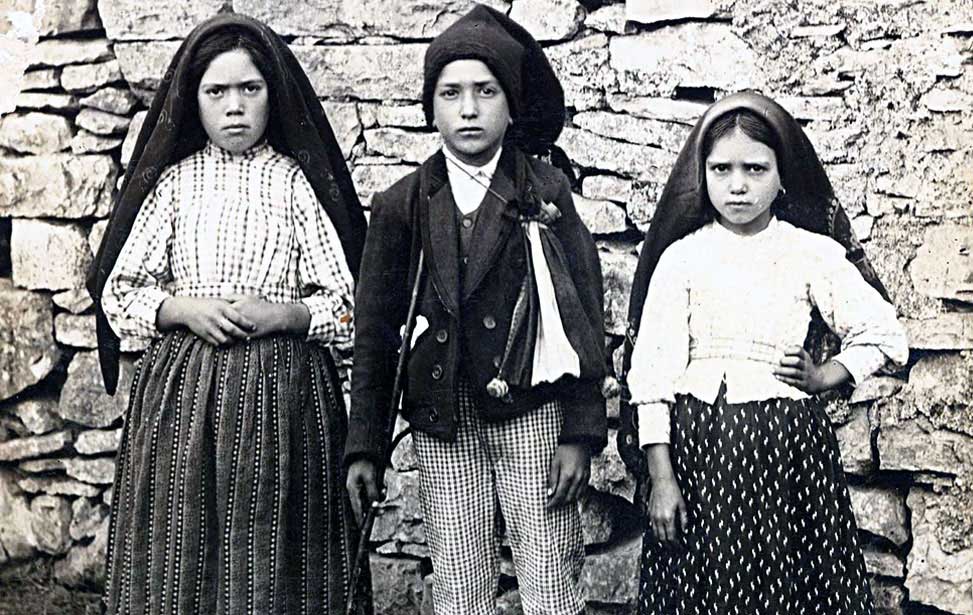
The children of the miracle of Fátima
The town's name originates from the legend of a Moorish princess named Fatima, who was abducted by a crusading Christian knight, Gonçalo Hermigues, and brought to a small village in the Serra de Aire hills within the newly formed Kingdom of Portugal. According to Western Catholic tradition, Fatima fell in love with her captor and embraced Christianity to marry him, adopting the name Oureana. For much of its history, Fátima remained a quiet and insignificant hamlet until May 13th, 1917, when three young shepherd children witnessed apparitions of the Virgin Mary in a grazing area known as Cova da Iria, just outside the town.
These cousins, Lucia, Francisco, and Jacinta, experienced recurring visions on the 13th day of each subsequent month until October. During these apparitions, they were imparted with three secrets that were interpreted as prophecies concerning events such as the Second World War, the rise and fall of Communism, and the assassination attempt on Pope John Paul II. In response to skepticism and criticism from locals, the children requested a sign from the "Virgin of the Rosary" to validate their experiences. During the final apparition, witnessed by 70,000 people, a phenomenon known as "The Miracle of the Sun" occurred. Despite the pouring rain, spectators reported seeing the sun spin on its axis and emit multicolored rays of light, with subsequent claims of miraculous healings in the days that followed.
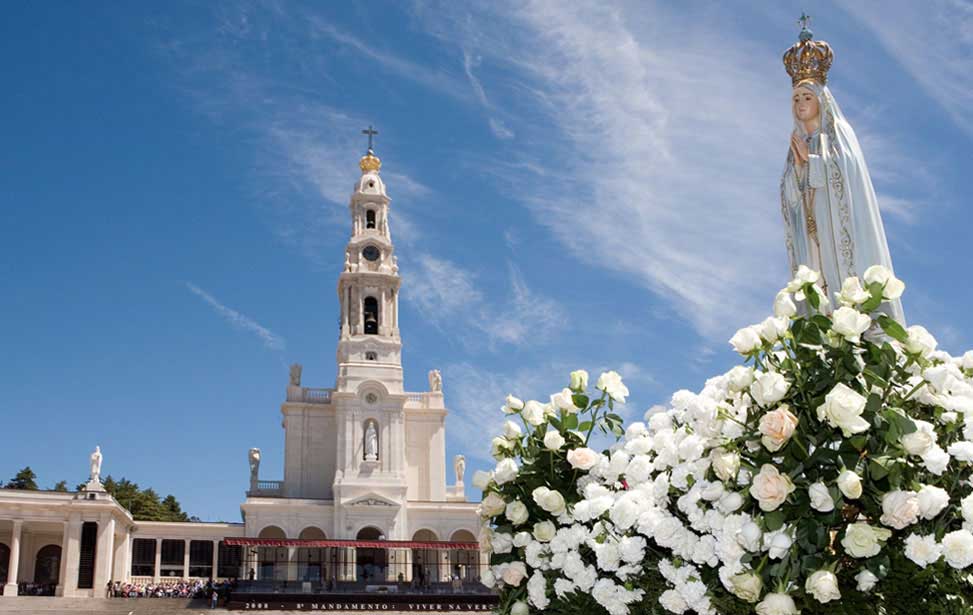
Since the revelations given to the shepherd children, there has been ongoing investigation, debate, and scrutiny from both church officials and academics. For believers, the events of October 13th, 1917, serve as evidence of the divine, a conviction further supported by official recognition from the Vatican in 1930. However, pragmatists suggest that these events could be explained by local natural atmospheric phenomena.
Even today, speculation surrounds the three secrets disclosed to the children, who were aged seven, nine, and ten at the time. The first two revelations are widely known: the first described "Hell," while the second predicted the swift conclusion of the First World War and warned of a more devastating conflict if the world did not cease offending God. The third prophecy was conveyed in writing to the Vatican in 1941 by Lúcia, who had entered a convent in 1928. She stipulated that it should not be disclosed before 1960. To date, no Pope has revealed its contents. Lúcia outlived her two cousins, Francisco and Jacinta, who succumbed to the Spanish flu pandemic. She lived a devout life as a Carmelite Nun until 2005 and is likely to receive the same honour as her cousins, being beatified in the future.
FÁTIMA, NAZARÉ & ÓBIDOS GUIDED TOUR: FROM LISBON
Embark on a captivating one-day tour of Portugal’s most iconic destinations, where history, culture, and natural beauty come together. Ideal for travellers eager to experience Portugal’s rich heritage, this tour offers the perfect blend of convenience and discovery.
Fátima: Visit the world-renowned Sanctuary of Fátima, a sacred pilgrimage site where the Virgin Mary is said to have appeared. Explore the stunning Basilica of Our Lady of the Rosary and the serene Chapel of the Apparitions, offering a tranquil and spiritual experience.
Nazaré: Discover the coastal charm of Nazaré, a traditional fishing village famous for its massive surfable waves. Take in the breathtaking ocean views, immerse yourself in local traditions, and explore its vibrant culture.
Óbidos: Step back in time with a visit to Óbidos, a medieval town brimming with history. Walk along its ancient walls, admire the whitewashed houses, and browse the charming local shops. Be sure to taste the delightful ginjinha, a beloved cherry liqueur.
Disclaimer: tickets are sold and handled via well-established 3rd party tour agents madaboutsintra.com are affiliated. This means we receive a small commission from our partners at no extra cost when you purchase through a link. This helps to cover running costs, and keep our passion alive.
THE SANCTUARY AT FÁTIMA
The sanctuary has been developed in several phases over time, centred on the area of Cova da Iria, where the three children witnessed the Marian apparitions of Our Lady of the Rosary, later revered as Our Lady of Fátima. Comprising various buildings, shrines, and monuments, the sanctuary stands as a symbol of the religious, political, and social impact of the event. At the heart of the complex lies the humble Chapel of the Apparitions and its shelter, marking the precise location where many of the events are believed to have occurred. This spot holds special significance as the place where the initial pilgrims honoured the Marian apparitions, fostering a deep sense of reverence among visitors.
CHAPEL OF THE APPARATIONS
During the apparition on October 13th, Mary instructed Lucia, Francisco, and Jacinta to erect a chapel in her honour. Construction commenced in 1919 at the very site of five of the six apparitions. However, on March 6th, 1922, anti-Catholic adversaries planted a bomb inside the unfinished shrine, causing significant damage and necessitating the second phase of construction. The chapel reopened on January 13th, 1923. Today, the Chapel of the Apparitions is enclosed in glass, open on one side. It was inaugurated by Pope John Paul II during his first visit in 1982.
Inside, visitors encounter a sculpture of Our Lady positioned where she appeared under an oak tree. Crafted by José Ferreira Thedim from Brazilian cedarwood, the sculpture stands just over one meter tall. Cardinal Aloisi Masella, a pontifical legate, solemnly crowned the statue on May 13th, 1946. This crown, fashioned from solid gold weighing 1.2 kg, is adorned with 313 pearls and 2679 precious stones. Remarkably, it also contains a bullet removed from John Paul II following his assassination attempt in 1981. The statuette only wears this crown on special occasions.
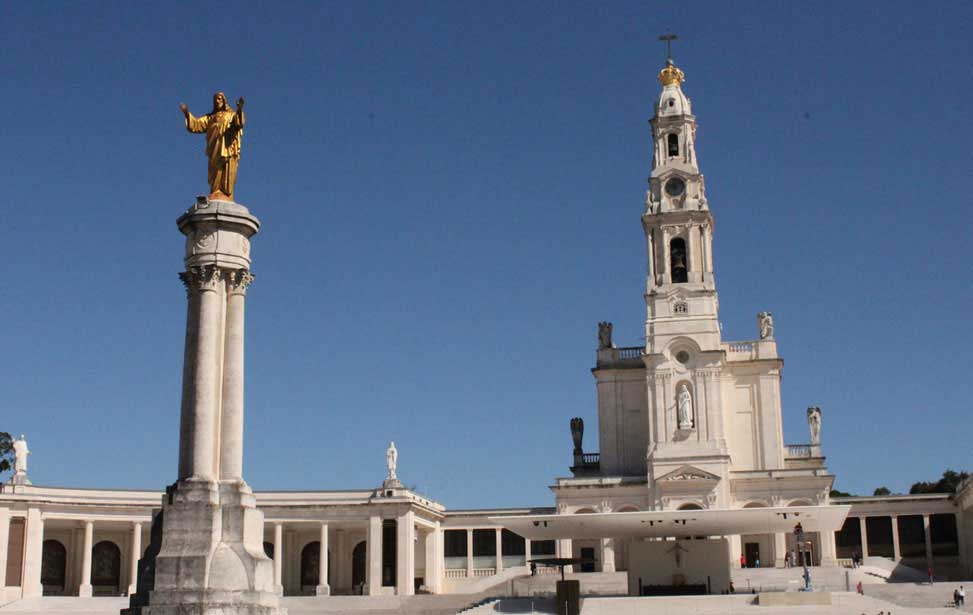
The Basilica - Fátima
THE BASILICA
Dominating the vast 150,000 square meters (37 acres) plaza at the Sanctuary is the magnificent neo-classical limestone Basilica, boasting a bell tower soaring 65 meters (213 ft) high. Crowned atop is a 7KG bronze crown, while a white marble statue of the Immaculate Heart of Mary, standing 4.73 meters tall, adorns a niche on the tower's face. Inside the tower resides a 62-bell carillon, with the largest bell weighing approximately 3,000 kilograms (6,600 lb) and a clapper weighing 90 kilograms (200 lb). Extending from the tower are two long colonnades, linking it with the extensive conventual and hospital buildings.
Construction of the Basilica commenced on May 13th, 1928, and culminated in its consecration in October 1953. Within, visitors find altars dedicated to the 15 mysteries of the Rosary, with a painting above the high altar depicting Our Lady delivering her messages to the children. The basilica serves as the final resting place for all three shepherd children, with their tombs situated behind the high altar.
Open for mass from 07h30.
360 Rua de Santa Isabel, 2495-424, Fátima, Portugal. | 39º 37' 55.7" N | 08º 40' 18.4" W
+351 249 539 600 | info@fatima.pt | Website
AROUND THE SANCTUARY
The Big Holm Oak stands as a replacement for the tree where the three shepherd children awaited the apparitions of Mary, after the original was destroyed by over-enthusiastic relic hunters. Its original location is within the Chapel of the Apparitions. The Monument to the Sacred Heart of Jesus, positioned atop a pillar in the square's centre, is built on the site of a sacred natural spring. Nearby, at the sanctuary's entrance, an enclosure houses a segment of the Berlin Wall, brought to Fátima in 1994 to symbolise the connection between the visions and the fall of Communism. Across from the sanctuary lies the Paul VI Pastoral Centre, a large circular building dedicated to the study and contemplation of the message of Fátima.
Adjacent to the sanctuary is the Sacred Way, tracing the route the young shepherds would have taken from their homes in Aljustrel. Along this path, 15 small chapels and shrines mark points of particular interest, including the Well of Arneiro, once in Lucia's garden and the site of a second apparition. The Valinhos monument commemorates the fourth manifestation of Our Lady.
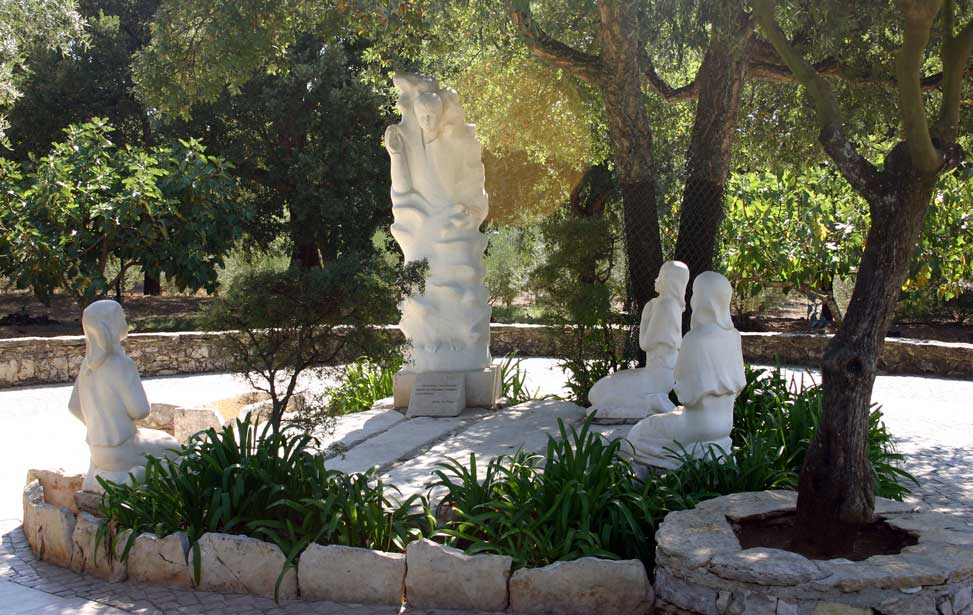
The Sacred Way - Fátima
AMENITIES IN FÁTIMA
|
There is a cafeteria on site and plenty of cafés and restaurants dotted around in close proximity to the sanctuary. | |
|
There are toilets on site in various places. | |
|
Apart from the 12 and 13 th May and October there's no shortage of parking spaces at the shrine and around. The majority of parking is free. | |
|
The whole grounds are easy to access for those with impaired mobility and wheelchairs are available on request. |

TOP TOURS OF FÁTIMA
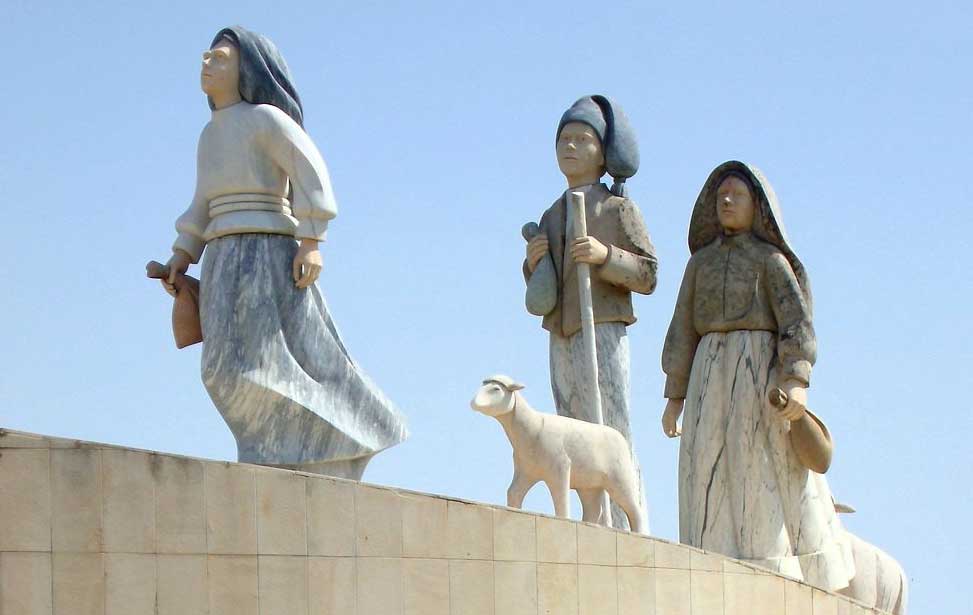
Divine Fátima Full Day Private Tour - From Lisbon
Experience a unique part of Portuguese history during this private full-day tour to Fátima. Famous for a sighting of the Virgin Mary experienced by three young children in 1916, Fátima has become an important pilgrimage site for Catholics worldwide. After pick up from Lisbon, your first stop is the town of Aljustrel. Next, head to Valinhos, where the apparitions appeared. Feast on a delicious Portuguese lunch before continuing on to the Parish Church and Fátima Sanctuary. Spend the afternoon wandering other important monuments to the apparition, including the Basilica of Our Lady of the Rosary of Fátima and the Chapel of Apparitions. Your guide returns you to your preferred drop-off destination at the end of the tour.
(262) | 9 Hr | ✔ Free Cancellation
Check Avalability
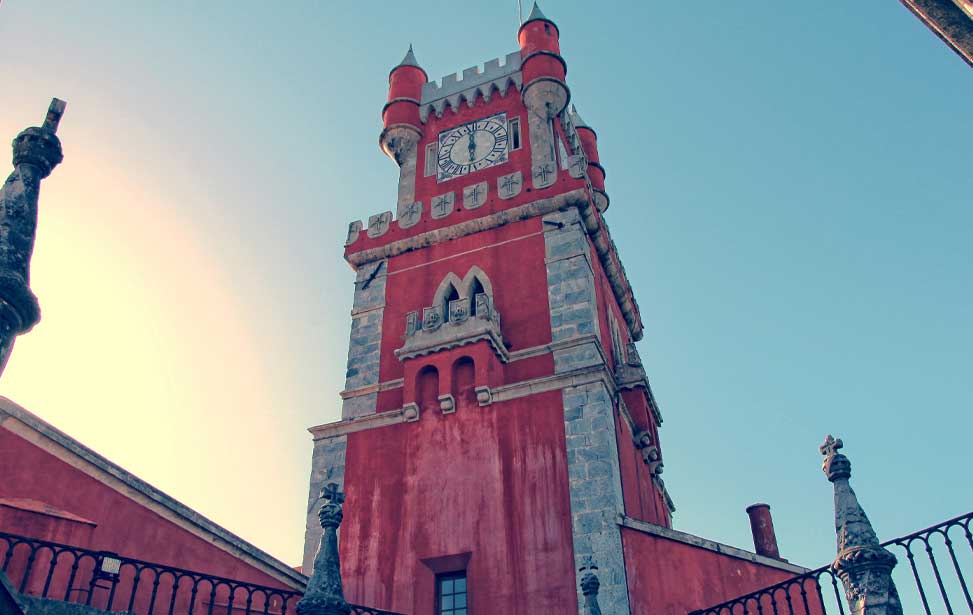
Day Tour Fátima & Sintra
Visit a UNESCO World Heritage Site and one of the worlds largest pilgrimage centres in one day on this hassle-free day trip to Fátima and Sintra. After being picked up in Lisbon you will be chauffeured in style abord a private Mercedes-Benz. You'll visit Fátimas important religious sites before heading off to beautiful Sintra.
(9) | 8 Hr | ✔ Free Cancellation
Check Availability
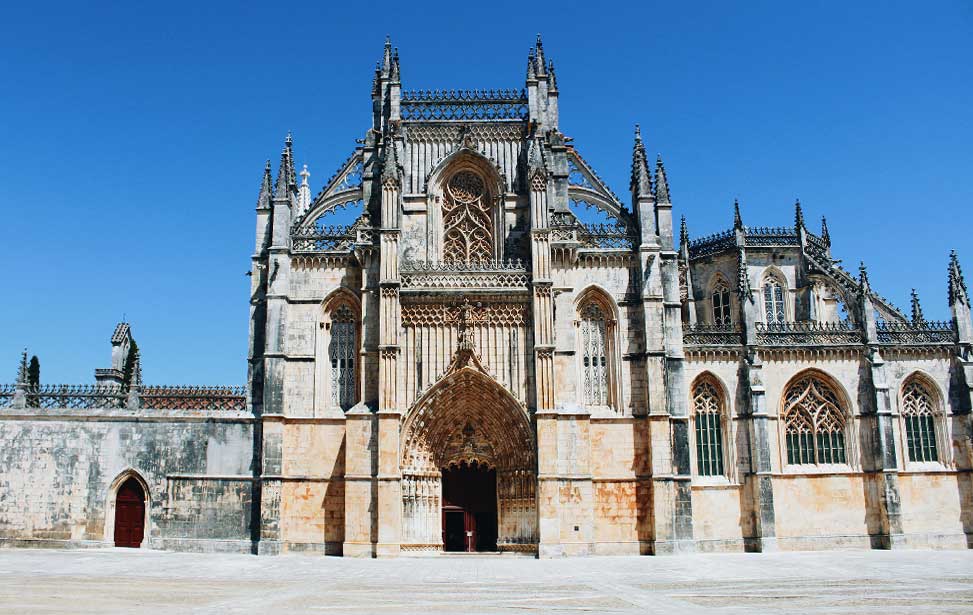
Fátima, Batalha, Nazaré, and Óbidos Tour
After pickup from Lisbon enjoy the drive to the Sanctuary of Fátima. Pass historic villages on the way. Then, head to the Monastery of Batalha. Continue to Alcobaça Monastery, established in the 12th century by the first King of Portugal. Hear a tragic love story from Portuguese history, and then get some free time to try the local food and wine during lunch.
Continue to the charming fishing village of Nazaré to visit a 16th-century shrine and take in the stunning views. Move on to the walled city of Óbidos to stroll the medieval streets and marvel at the UNESCO World Heritage monuments. Taste a traditional Ginjinha liqueur before returning Lisbon.
(797) | 11 Hr | ✔ Free Cancellation
Check Avalability
WHERE TO STAY IN FÁTIMA
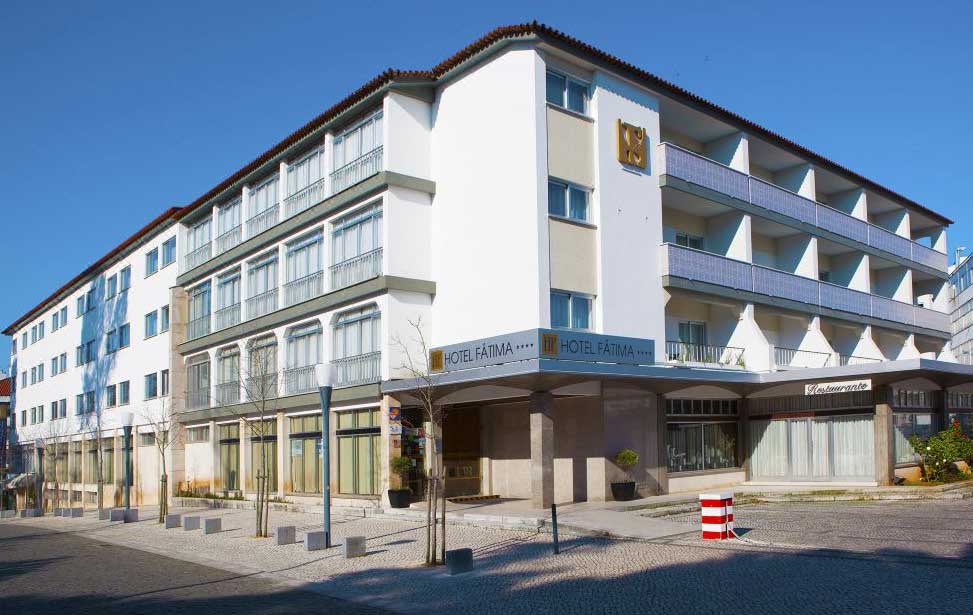
Hotel Fátima ★ ★ ★ ★
8.9/10 Fabulous (1,852 verified customer reviews)
Hotel Fátima is a 4-star hotel within easy walking distance to the Sanctuary of Fátima and the Apparitions Chapel. It features a large lounge area, bar and business centre. All rooms are equipped with air conditioning, satellite TV and a work desk. The hotel restaurant serves regional Portuguese and international cuisine. There are also facilities available for hosting weddings, banquets and conventions.
Rua João Paulo II, 241, 2495-451 Fátima, Portugal. | N 39º 37' 52.3" | W 08º 40' 32.7"
Check Availability
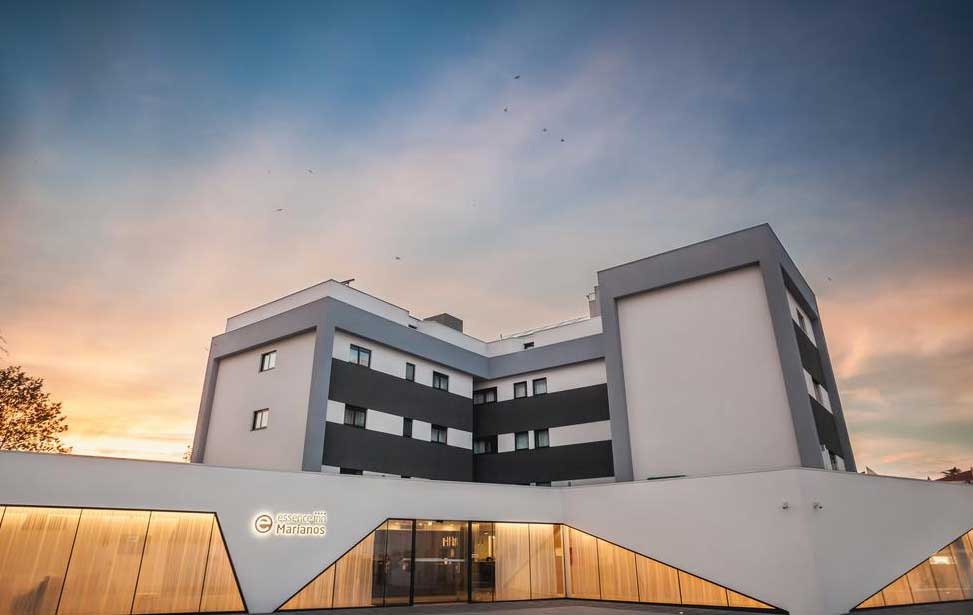
Essence Inn Marianos ★ ★ ★ ★
8.9/10 Fabulous (1.392 verified customer reviews)
The Essence Inn Marianos hotel is located in the centre of Fátima, just 50 yards away from the Shrine, in Fatima. Room décor varies depending on the floor and free WiFi is available throughout. The bright refurbished rooms have private bathrooms with a shower, air conditioning and a direct-line telephone. The Essence Inn Marianos also features a restaurant, a chapel and private free parking.
2 Rua de São Paulo, 2495-435 Fátima, Portugal.
N 39º 37' 51.4" | W 08º 40' 35.6"
Check Availability
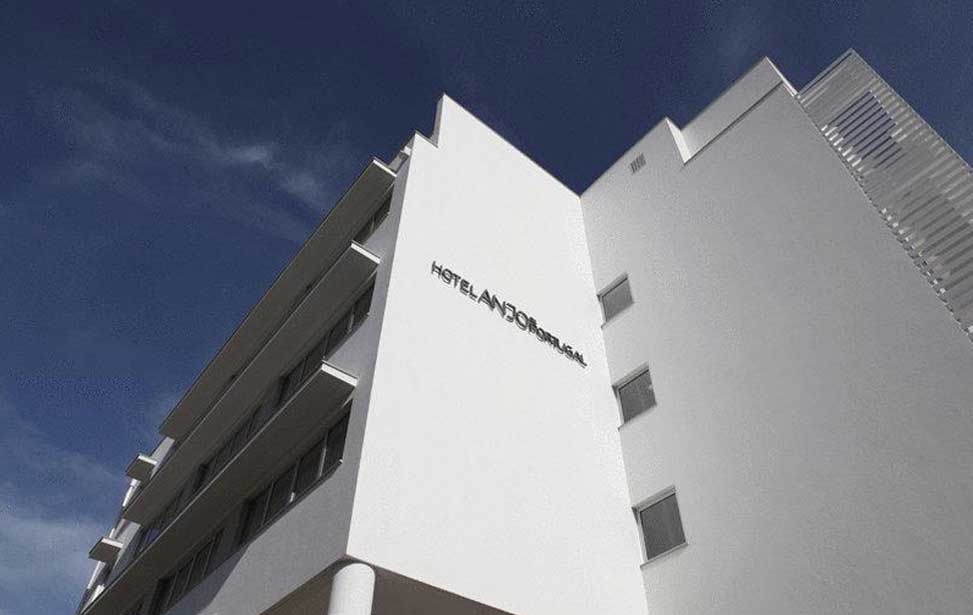
Hotel Anjo de Portugal ★ ★ ★ ★
9.0/10 Superb (2,238 verified customer reviews)
This design hotel is located less than 200 yards from the Sanctuary of Our Lady of Fatima. It features a restaurant, a bar and in-room free Wi-Fi. Hotel Anjo de Portugal's bright rooms feature flat-screen TVs and work desks. All rooms are air-conditioned and have a bathtub in the en suite bathroom. The on-site restaurant combines nouvelle cuisine and minimalist décor. There is an outdoor lounge area, where guests can enjoy a cool drink or a coffee from the hotel's bar.
24 Rua Anjo de Portugal, 2495-415, Fátima, Portugal.
N 39º 38' 02.2" | W 08º 40' 35.3"
Check Availability
THE CHILDREN'S HOMES
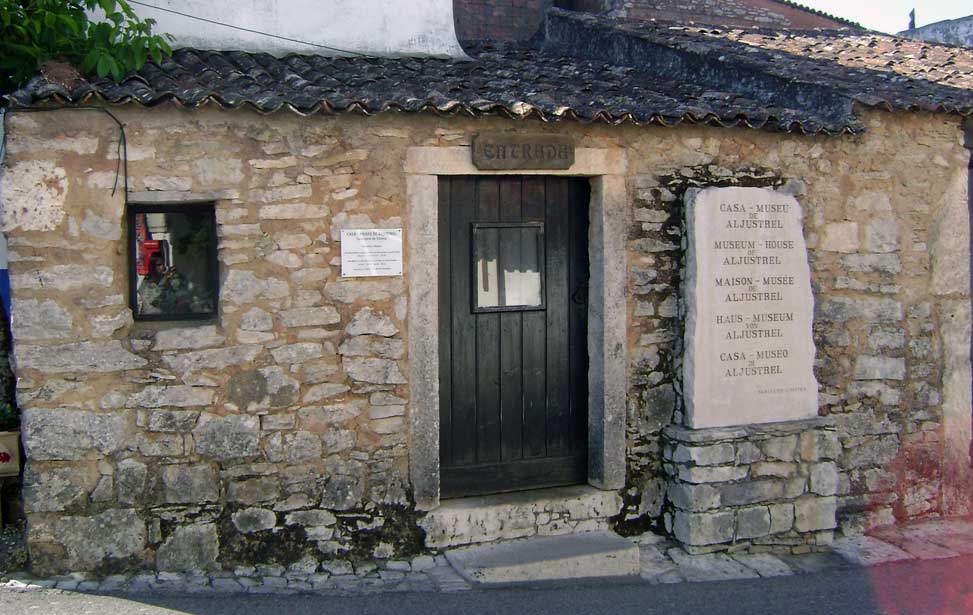
Lúcia de Jesus dos Santos Museum
The homes of the shepherd children have been preserved over time and now are museums open to the public. In the village of Aljustrel a short distance from the Sanctuary is the home of Jacinta and Francisco Marto.
Daily: 09h30 - 17h00.
42 Rua de Aljustrel, Fátima, 2495-301, Portugal.
39º 36' 58.7" N | 08º 39' 48.8" W
+351 249 521 777
Two minutes away is the family home of Lúcia de Jesus dos Santos who lived her adult life as a nun. On February 13, 2017, Sister Lúcia was accorded the title Servant of God, as the first major step toward her canonisation.
Daily: 09h30 - 17h00.
86 Rus dos Pastorinhos, Fátima, 2495-301, Portugal.
39º 36' 56.7" N | 08º 39' 53.7" W
+351 249 781 638
WHERE TO EAT IN FÁTIMA
Tia Alice Restaurante
One of the best restaurants not only in the area but as the country as a whole. Ideally located close to the sanctuary dinner here is the perfect way to round off the day. A flight of wooden stairs guide you down to an intimate dining area with stone walls. Tia Alice (Aunt Alice) first opened it's doors in 1988 and have gained a great reputation for fine dinning and mastery of Portuguese fare. Far from being pretentious the dinning experience here is relaxed and friendly.
Tuesday – Saturday: 19h30 - 21h00, Sunday & Monday: 12h00 - 15h00
152 Av. Irmã Lúcia de Jesus, Fátima, Portugal.
GPS: N 39º 37' 04.1" | W 08º 39' 12.6"
+351 249 531 737
tia-alice@sapo.pt
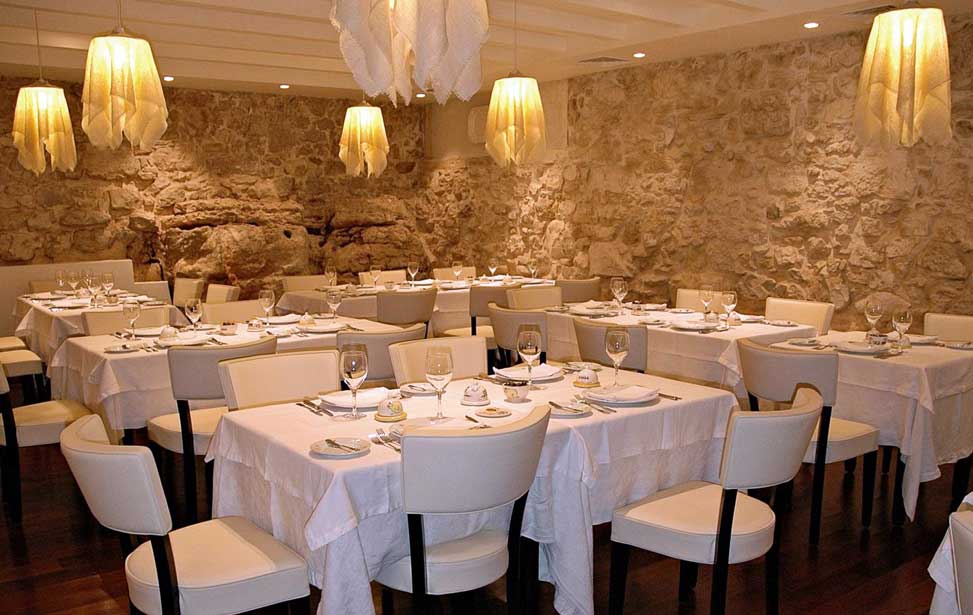
A Cave
A small yet homely restaurant which serves beautifully presented Portuguese and international dishes at reasonable prices. The staff are very friendly and always at hand to offer advice and suggestions. If possible keep some room for their tasty selection of desserts. There are vegetarian, vegan and gluten free options available here too.
Daily: 12h00 - 14h30/19h00 - 22h00
895 Avenida dos Pastorinhos, Cova da Iria, 2495-408, Fátima, Portugal.
GPS: N 39º 35' 19.3" | W 08º 39' 09.7"
+351 49 153 159/916 300 356
geral@restauranteacave.pt | Website
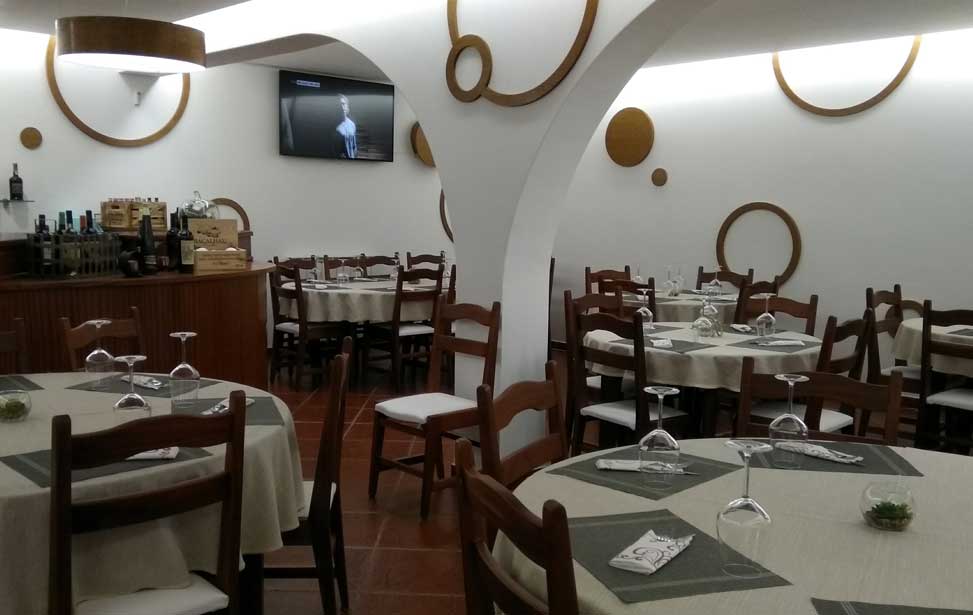
Restaurante Manhas
Manhas serves authentic Portuguese cuisine with a contemporary twist. Quality is constantly very high as is the service. The friendly and attentive staff always making you feel welcome and much appreciated. The atmosphere too is laid back and the prices are reasonable.
Daily: 12h00 - 15h00/19h00 - 22h00
Avenida Dom Jose Alves Correia da Silva N0 114B | Nº 114 B, Fatima 2495-402, Portugal.
GPS: N 39º 37' 55.4" | W 08º 40' 51.2"
+351 249 534 327
reservas@manhas.pt | Website
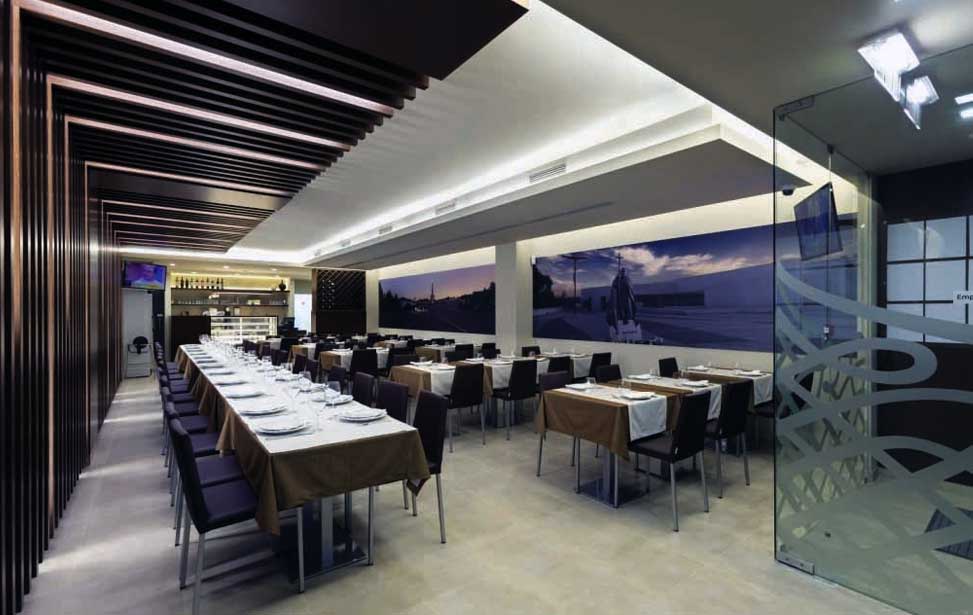
PEGADAS DOS DINOSSÁURIOS
Visitors in the Fátima region who are intrigued by natural history often make a beeline for the Pegadas dos Dinossáurios, situated just outside the village of Bairro in the Serra de Aire hills, approximately ten kilometres (6mi) south of Fátima. In 1994, palaeontologists made a remarkable discovery here: the oldest and largest collection of preserved Sauropod tracks ever found. These footprints, believed to be 175 million years old, offer a fascinating glimpse into the distant past when giant herbivorous dinosaurs roamed the Earth.
Located within an abandoned quarry floor, the Pegadas dos Dinossáurios site spans a 150-metre area and showcases hundreds of well-preserved Sauropod tracks. These impressions, etched into ancient limestone, provide valuable insights into the behaviour and size of these ancient creatures. Experts estimate that the Sauropods responsible for these tracks were up to thirty metres in length, based on the spacing between footprints.
Within the park, visitors can marvel at full-size Sauropod statues and explore information boards that offer detailed explanations about this extraordinary discovery.
Tuesday - Sunday 10h00 – 12h30/14h00 – 18h00
€3.00
Estrada de Fátima, Ourém, 2490-216, Portugal.
39º 34' 20.5" N | 08º 35' 40.3" W
+351 249 530 160
dinossaurios@hotmail.com | Website
MIRA DE AIRE CAVES
For those seeking earthly wonders near Fátima, the Mira de Aire Caves offer a captivating underground adventure. Located just over thirteen kilometres (8 mi) south of Fátima, these caverns form the largest network of subterranean caves in Portugal. Extending nearly eleven kilometres (7 mi) into the hills of the Parque Natural das Serras de Aire e Candeeiros, the Mira de Aire Caves are celebrated as one of the seven natural wonders of Portugal.
Descending 683 steps over several levels, visitors are treated to a mesmerising display of geological formations illuminated by multi-coloured lights. Stalactites, stalagmites, and other remarkable features captivate the imagination as knowledgeable guides lead guests through the caverns, offering insights into the natural processes that created these wonders. Highlights of the tour include an underground lake and a majestic waterfall.
Discovered by local residents in 1947, the caves were opened to the public in 1974. Above ground, visitors can enjoy a small water park with swimming pools and a bar, providing entertainment for both adults and children alike.
High Season: Daily 09h30 – 19h00, Low Season: Daily 09h30 – 17h30
Adult: €6.60, Child <12 Yrs: €3.90
470 Av. Dr. Luciano Justo Ramos, Mira de Aire, 2485-001, Portugal. | 39º 32' 39.3" N | 08º 42' 57.6" W
+351 244 440 322 | grutasmiradaire.com | Website
HOW TO ARRIVE IN FÁTIMA
126km ( 78 miles ) North East of Lisbon Portela Airport Website GET A GREAT DEAL ON FLIGHTS:
|
|
From Lisbon take the A1 (with tolls) North 126 km ( 78 miles ), exit at Fatima and follow signs to the Santuario.. Latitude - 39º 37' 55.4" | Longitude - 08º 40' 51.5" GET A GREAT DEAL ON CAR HIRE:
|
|
Please note the Fátima train station as mentioned on timetables is in fact 19 miles (30 km) east of Fátima town itself. It's suggested to alight the train at Caxarias from Lisboa Santa Apolónia and take a connecting bus from there. Train Timetable | Connecting Bus Timetable |
|
Rede Expressos run services to Fátima from Lisbon Sete Rios coach station and takes about 90 minutes. Website |

 Lisbon Card Discounts
Lisbon Card Discounts

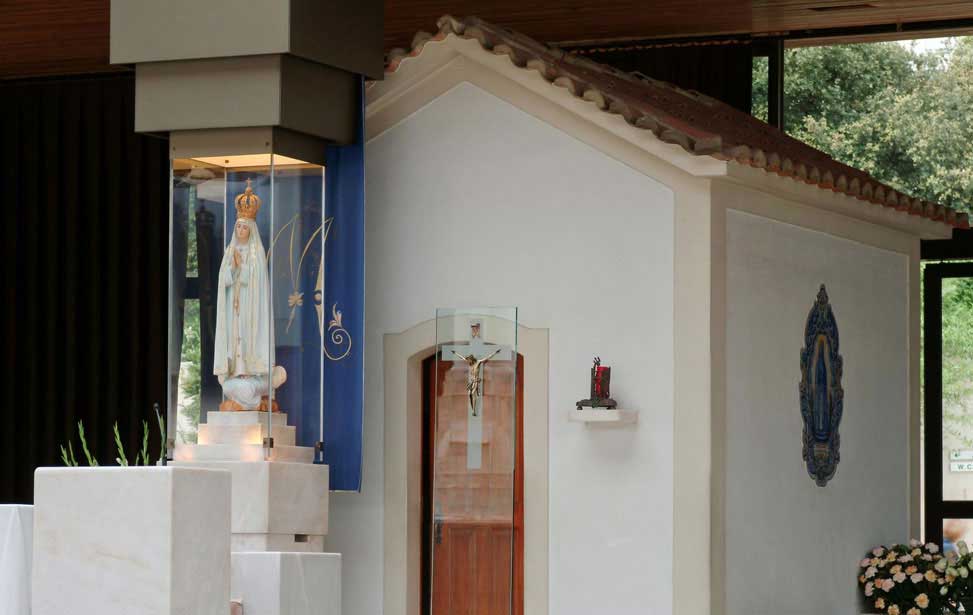
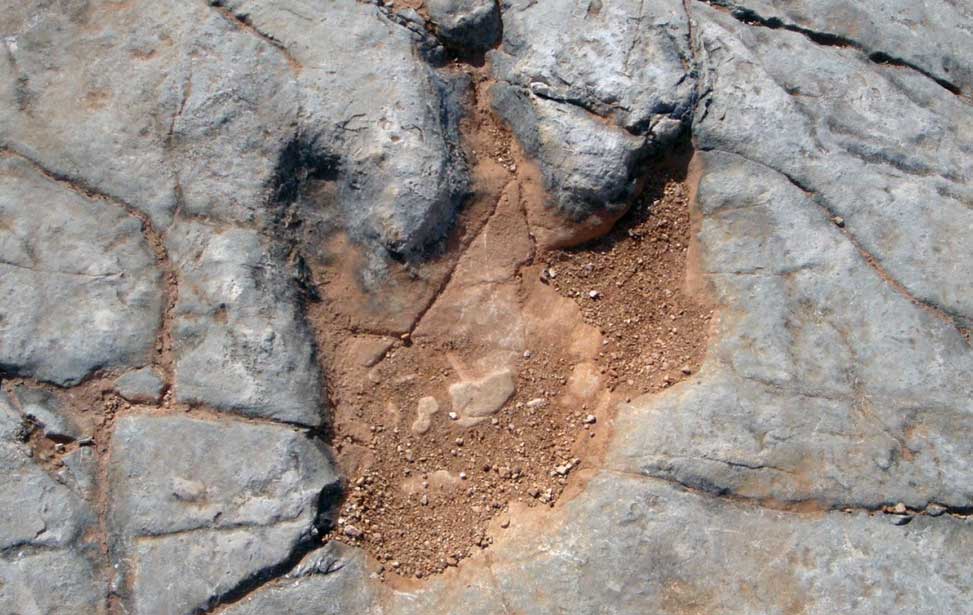

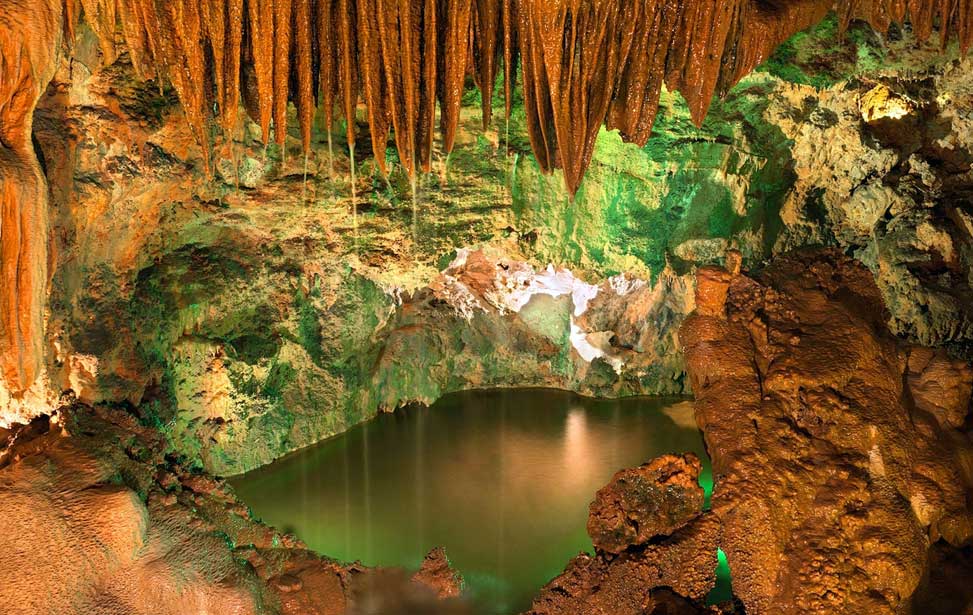

 Travel & Tourism Awards 2024, Best Lisbon Travel & Cultural Guide 2024 - UK
Travel & Tourism Awards 2024, Best Lisbon Travel & Cultural Guide 2024 - UK

